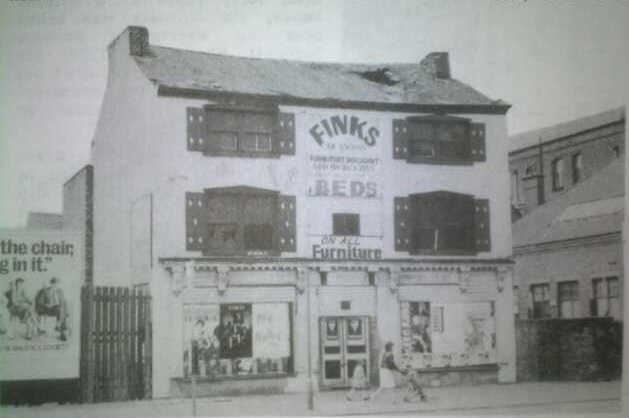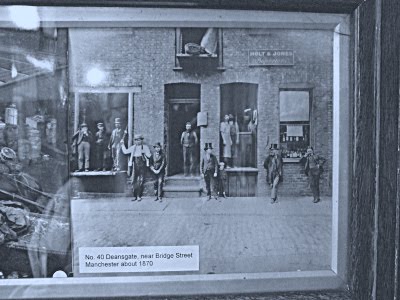Think you've cleared most of this up by now, but here's my two pennorth:
http://pubs-of-manchester.blogspot.com/2010/03/astley-arms-great-ancoats-street.html This from Neil Richardson's
The Old Pubs of Ancoats (1987):
"The Astley Arms is first recorded in 1821, tenanted by Thomas Evans. Around 1840 the house was rechristened the Pagianni Tavern by Thomas Inglesent, who is recalled in J J Slugg's "Manchester Fifty Years Ago". Pagianni came to Manchester in the 1830s and '
In after years a blind man known as Tom Inglesent, who kept the Pagianni Tavern on Great Ancoats Street, became a very clever imitator of the great violinist.'
In March 1849 the Pagianni featured in a newspaper account entitled "The Bank of Elegance": '
Shortly before one o'clock on Monday morning, a well-dressed young woman inquired of three men in Great Ancoats Street, the way to the cathedral. They directed her and then she requested them to have a glass of something to drink. To this they consented and all four went into the Pagianni. The landlord being blind it is managed by his brother-in-law. She called for four glasses of brandy and presented what she called a £10 Bank of England note, but which was a handbill belonging to some shop, drawn up after the fashion of a Bank of England note, and purporting to belong to the 'Bank of Elegance'. The man not being sufficiently able to read it, demurred to receiving it, as he thought it was a £5 note. She told him that she had a £5 note and pulled out another 'Bank of Elegance' paper... he was disinclined to take either. He showed them to three musicians who were leaving the house, and none of them could detect that they were not real notes, though all suspected them not to be so. The young woman then offered to leave them in the man's care until the following day, on condition that he gave her a sovereign as security, which she would return when she came for them and pay for the brandy. He consented to the arrangement, and gave her a sovereign, but directly afterwards, fearing that there was something wrong about the pretended notes, he spoke to a policeman (who had followed the woman and men into the house). The policeman apprehended the young woman and she then gave the man his sovereign back. The woman, whose name is Elizabeth Disley, was brought up at the Borough Court the same day... she stated in answer to the magistrates that she could read a little print but not writing. She said that the 'notes' were given her two years ago by a gentleman of her acquaintance. He have her four £10 notes and six £5 notes. She had only the two produced left. All the others (she claimed) were good ones, and she did not know that those two were not so. She was remanded to yesterday when she was discharged with a caution.'
Tom Inglesent retired in 1848 and the owners advertised for a new tenant for the "vaults, brewhouse, doing excellent business, averaging eight barrels of ale per week."
In the 1850s the inn had become the Astley Arms again and remained open until 1928, when it was a Cornbrook house. The building has had several uses since, but it still stands, opposite the end of Jersey Street, and in 1986 it was partly rebuilt."





 )
)
